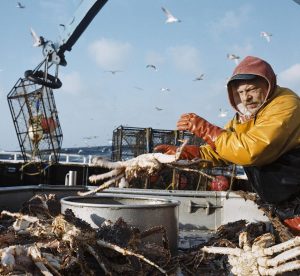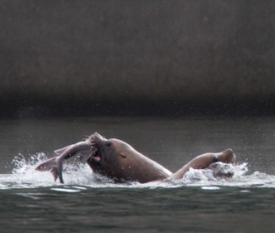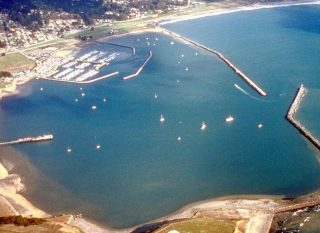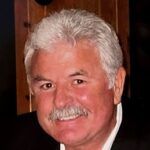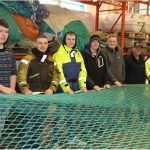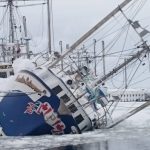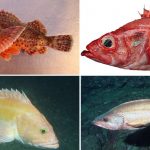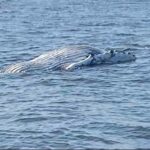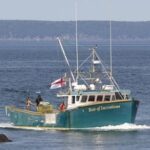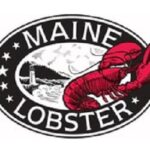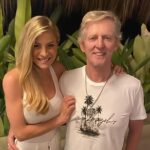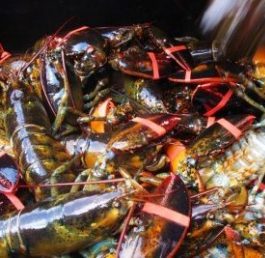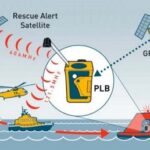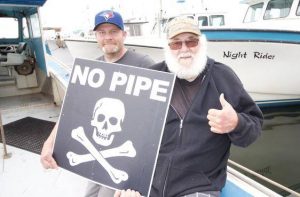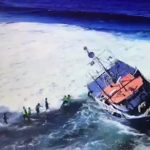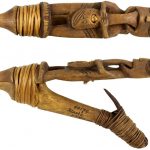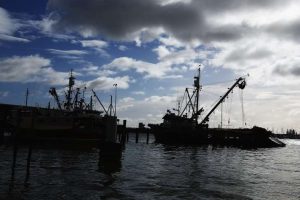Category Archives: Pacific

Are the House of Representatives Anti Real Sience? Golden’s effort to withhold whale protection money fails
The U.S. House of Representatives voted 345-84 to kill the amendment to the U.S. Department of Commerce spending bill. The proposed budget rider was also supported by Rep. Chellie Pingree, D-1st District.,,, California Rep. Jared Huffman, a fellow Democrat who is the chairman of the House Committee on Natural Resources’s wildlife committee, spoke against the amendment, arguing the tool used to build the right whale protection plan was built on the best available scientific information. “Defunding it undermines consensus-based, conservation decision-making process,” Huffman testified. “It would set a dangerous precedent … and have impacts on other industries, fisheries and the North Atlantic right whale.” >click to read<12:18 How the House of Representatives voted. >click to read<
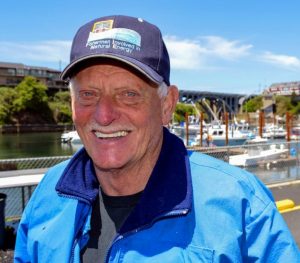
Back in the Saddle
Former county commissioner Terry Thompson emerged from his first commercial fishing expedition since his stroke four months ago with a heavy haul of ling cod destined for a premier seafood restaurant in Newport. Flashing the familiar Thompson grin, Terry said he had plenty to smile about — his emerging victory over stroke, the return to fishing, the miracle that saved his best friend’s life and unexpected recognition. >click to read<10:17
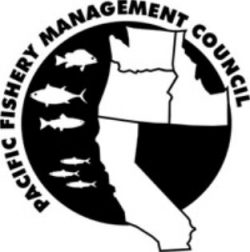
Pacific Fishery Management Council meeting June 19-25, 2019 in San Diego – Listen Live.
The Pacific Fishery Management Council and its advisory bodies will meet June 19-25, 2019 in San Diego, California, at the DoubleTree by Hilton San Diego – Mission Valley 7450 Hazard Center Drive San Diego, CA 92108. Agenda and Meeting Notice, >click here to read<>Listen to the meeting live >click to listen<, Enter the Webinar ID: 634-645-459 Please enter your email address (required). Visit Pacific Fishery Management Council >click<21:46
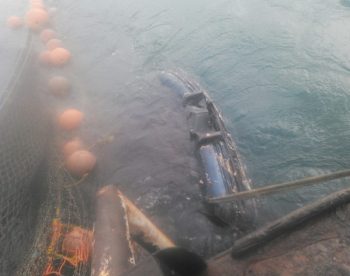
Sedan overboard! Here’s how cars wound up sunk off the Washington coast
Out where the water is a thousand feet deep, an old wooden fishing boat was slowly dragging its net along the sea bed. It was trawling for Dover sole, flatfish about the size of dinner plates. “There’s only a couple of spots in the area that are that deep, and we have lots of really giant Dover within there,” said Makah tribal fisherman Larry Buzzell of Neah Bay, Washington, on his way back from a more recent fishing trip.,,, “But as we pulled the net up, we saw a fender and a license plate and a crushed car, stuck in the mouth of the net,” he said. >click to read<20:27

A Fishery Management Proposal
Its frustrating to watch fish regulators on the various fishery management councils continuously cut back on fishermen allocations with no regard for how they will make up for the “scientific” decision that takes revenue from them. I have reached out to various politicians to create a Farm Bill for fishermen, which would be a huge undertaking for the Congress, and in the current political climate, it seems like an impossible task, even though it is needed. In the meantime, the mismanagement continues, and people are pushed closer to exit the industry, which is unacceptable. What I am proposing is to correct this and mitigate the damage caused by the cutback is legislation. This is what I would like to see. Sam Parisi >click to read<12:16
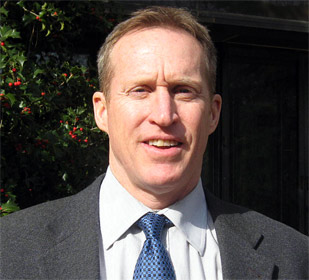
Eric Schwaab Comes Aboard as New Head of EDF’s Oceans Program
“Eric was critical to the success we achieved during my time as NOAA Administrator,” said Dr. Jane Lubchenco, University Distinguished Professor, Oregon State University and former EDF Board Trustee. “His unflappable get-it-done approach makes him notably effective working with a range of stakeholders from fishermen to global leaders.” As head of NMFS, Schwaab led the transformation of U.S. fisheries management including widespread adoption of science-based catch limits and catch shares. EDF was a leading advocate for these reforms, which have driven a dramatic recovery of fish populations and increased catch and profits for fishermen. >click tp read<10:02
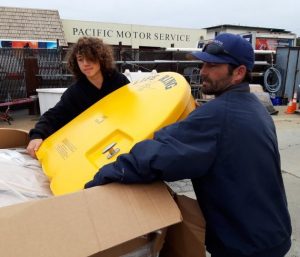
Monterey 8th-grader brings life rings to the wharves
After conducting a series of interviews with various maritime officials, and hearing them preach about the need for flotation devices, a Monterey eighth-grader began noticing that neither of the two Monterey wharves had the very safety equipment he was told was critical. But Ladislav Nozicka didn’t write it off as ironic. He acted.,,, when he walked both Fisherman’s Wharves and the commercial wharves where his dad works, he realized both piers lacked the flotation devices he had learned were so important. “He has a very keen eye,” Elizabeth Nozicka said. “He realized something no one else noticed.” Ladislav knew marine safety devices well. His father, Jiri Nozicka, is a commercial fisherman out of Monterey and captain of the San Giovanni. >click to read<16:48
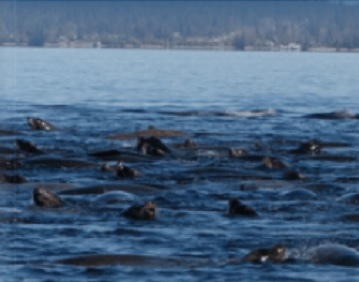
Sea Lions, Other Marine Mammals Discovering South Sound Anchovy Boom
A large suite of marine mammals has discovered Deep South Sound’s new bounty of anchovies, schools of which are now so numerous they’re routinely observed during regular aerial surveys. For three months this past winter, WDFW biologist Steve Jeffries observed hundreds of California sea lions, as well as harbor seals, harbor porpoises and long-beaked common dolphins feeding on a massive pod of the skinny, silvery baitfish in Case Inlet north of Olympia. Anchovy populations have boomed in these waters since 2015 and the Blob’s warm waters. What’s more, the pinnipeds and cetaceans appeared to be teaming up on them. >click to read<20:01
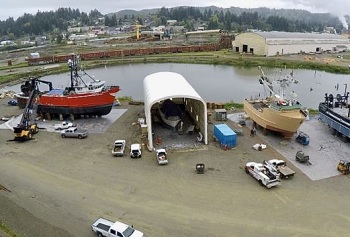
Meeting a need – College to offer boat/ship welding program
Starting this Fall, students and adult learners can take courses in welding from Oregon Coast Community College, thanks to a partnership with the Port of Toledo, Northwest Oregon Works, and the Lincoln County School District.,, “Since I arrived at the College in 2014, I have heard from industry and community about the need for welding and maritime workforce training,” said Dr. Birgitte Ryslinge, OCCC President. “Through this private-public collaboration we start building, rather than importing, our future maritime-industrial workforce. >click to read<11:43
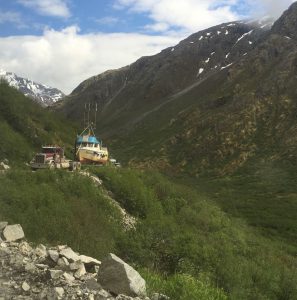
On the way to Bristol Bay, a sunken boat buoys a friendship
My two friends and I have been talking about the zombie apocalypse. It’s our shorthand for when things go very, very wrong.,,, Last week in a brief moment amidst chaos I remarked to her, “Well, here we are in the zombie apocalypse. I’m glad I’m here with you.” We were standing in the cabin of the Catch 22, the commercial fishing vessel belonging to Adri and her husband Luke. We had been accompanying him as he headed out to Bristol Bay for the summer when the boat hit a rock in a very shallow section of the Kvichak River and sank. >click to read<10:27
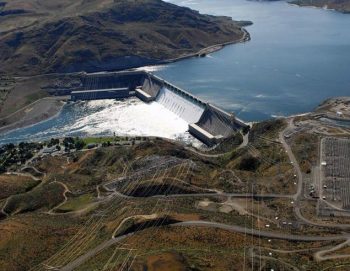
Report: Fish passage above the Columbia’s biggest dam can be done
It’s been nearly 80 years since salmon and steelhead made it past Chief Joseph and Grand Coulee dams in Washington’s Upper Columbia Basin.,, A team of researchers presented their findings on Tuesday to the Northwest Power and Conservation Council. In short, they said, salmon can survive in the upper reaches of the Columbia Basin, and fish passage needs to happen at the two dams. For several years biologists have looked into scenarios for salmon above the dams — if there was enough habitat available, if pathogens and predators wouldn’t cause too much damage, if there were even ways to get the fish around the concrete structures. >click to read<09:11
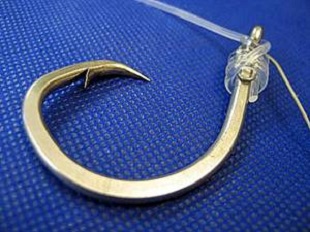
Leatherback sea turtles likely to go extinct under Trump administration policy, lawsuit argues
Leatherback sea turtles are likely to be “effectively extinct within 20 years” if two new federal permits for fishing off the coast of California go into effect, environmental groups claim in a new lawsuit. In April, the Trump administration granted new two-year “exempted fishing permits” to two California-based vessels in what are currently protected waters.,,, National Marine Fisheries Service,,, the federal agency said the permits “are not likely to jeopardize the continued existence of any listed species or result in the destruction or adverse modification of critical habitat.” The longline fishing will have to halt immediately if “one mortality of a leatherback sea turtle is observed.>click to read<14:03
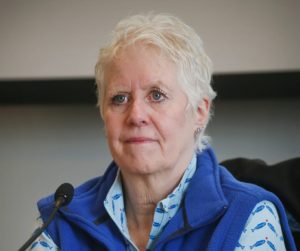
Pink salmon disaster relief grant delayed to July 1
Dear Friends and Neighbors, I wanted to keep everyone in the loop regarding the follow-up to my pink salmon disaster relief update in last Friday’s paper. As I write this, it is Wednesday morning, June 5. It was anticipated that the National Oceanic and Atmospheric Administration (NOAA) might release grant funding to the Pacific States Marine Fisheries Commission (PSMFC) for distribution by this past Saturday. I reached out to Sen. Lisa Murkowski’s office on Monday to see if, in fact, that had occurred. The Senator’s office had contacted NOAA at the start-of-business on Monday and, disappointingly, the federal agency again failed to act by the June 1 deadline. >click to read<12:57
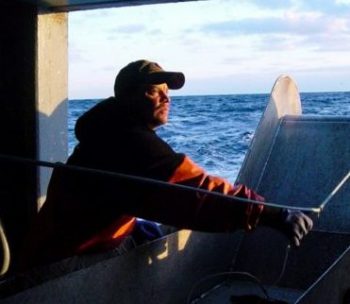
In loss — hope and a view forward
Lincoln County students will be better positioned for a shot at their dreams due to the memory of a man lost at sea. Edgar Ruiz Garcia and Anastasia Flatt are local recipients of the Dorothy and Clifford Hall Memorial Scholarship, each receiving $500. A scholarship for $1,000 went to Kai Daniels. The fund is dedicated to Eric Eder, a Newport fisherman who died in the Bering Sea in a 2014 trawling mishap. The scholarships go to those with families who work in the fishing industry. Students must turn in an essay and transcripts and meet other requirements. >click to read<17:37
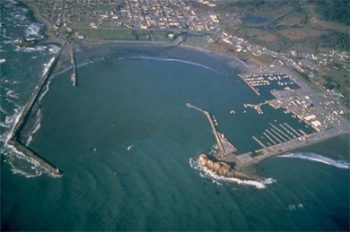
Commercial salmon season starts in Crescent City
Commercial salmon fishermen in Crescent City began their season on Saturday with a quota of 20 chinook per day and a monthly quota of 2,500, according to Crescent City Harbor Commissioner and Del Norte Fisherman’s Association president Rick Shepherd. The 20-fish-per-day quota and monthly quota of 2,500 applies to trawlers fishing between the Oregon border and the Humboldt South Jetty, said Shepherd, whose boat is one of roughly six in Crescent City that fish for chinook. The fleet is able to ply its trade on the ocean five days a week Friday through Tuesday. While a few fish have been brought into Eureka, so far no one has brought any salmon into the local harbor, Shepherd said. >click to read>07:50
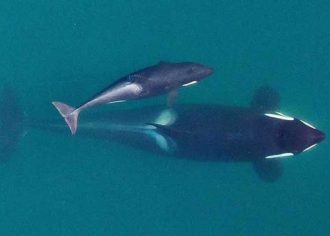
Human Population Growth Threatens Endangered Whales
The Puget Sound area surrounding the Salish Sea is expected to be home to almost 6 million more people by 2050, which would add between 33 and 150 square miles of paved area, according to the Washington Department of Commerce. “Population growth is the top challenge for conserving habitat,” Jeff Davis, assistant director of the Washington Department of Fish and Wildlife’s habitat program, said Monday at the Southern Resident Killer Whale Task Force meeting. Governor Jay Inslee convened the task force last year, asking it to provide recommendations to prevent the endangered whales’ extinction.>click to read<14:30
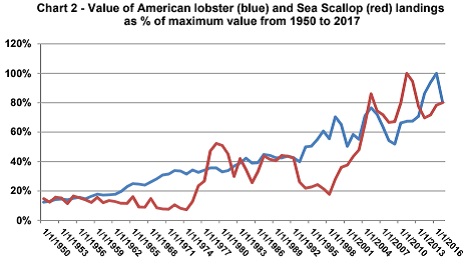
After over forty years of NOAA/NMFS management how are we really doing? Nils Stolpe
The Magnuson-Stevens Fishery Conservation and Management Act – I have seen the focus of government fisheries manage-ment increasingly shift away from the fishermen to the fish. The provisions of the Act as it was originally written were put in place to allow the U.S. fishing industry to regain control of the fisheries in the United States’ highly productive coastal waters,,, The legislation was singularly effective, so effective that within ten years or so of its passage the greatest portion of our domestic fish and shellfish production was being harvested by U.S. fishermen on U.S. vessels. This success was sold to the U.S. public – and the U.S. politicians – as an assault on the “sanctity” of our coastal waters by a burgeoning environmental industry that was (and still is) engaged in non-governmental empire building. This has resulted in a handful of multi-national ENGOs (Environmental Non-Governmental Organizations) that have become at least as influential as the fishing industry in national and international fisheries management. >click to read, and review the links and graphs<16:10
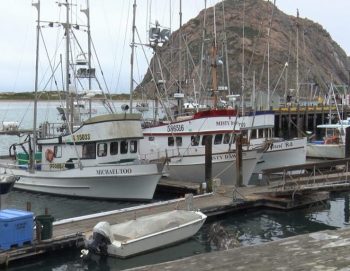
Trove of salmon delight fisherman on Central Coast, consumers could see price drop
“There’s a lot of smiling faces, the fellas who are fishing salmon, it’s a good thing to see,” Morro Bay Commercial Fishermen’s Organization Vice President Jeremiah O’Brien said.The Pacific Ocean from Avila Beach to Morro Bay is an underwater gold mine for salmon, O’Brien said,,, In the back room of Giovanni’s Fish Market, a man filleted a fresh-caught salmon to the persistent sound of a bell ringing non-stop to alert employees of new customers entering the store to buy fish. >Video, click to read<09:55
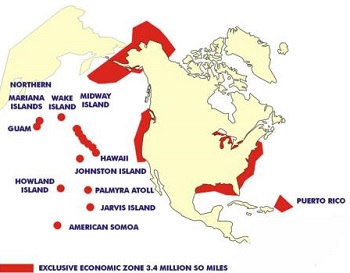
Fisheries Off West Coast States; Comprehensive Ecosystem-Based Amendment 1
Comprehensive Ecosystem-Based Amendment 1 (CEBA 1) amends the Pacific Fishery Management Council’s (Council’s) four fishery management plans (FMPs): the Coastal Pelagic Species (CPS) FMP, the Pacific Coast Groundfish FMP, the FMP for U.S. West Coast Highly Migratory Species (HMS), and the Pacific Coast Salmon FMP. CEBA 1 brings new ecosystem component species (collectively, “Shared EC Species”) into each of those FMPs and prohibits directed commercial fisheries for Shared EC Species within the U.S. West Coast Exclusive Economic Zone (EEZ). The final rule defines and prohibits directed commercial fishing for Shared EC Species, and prohibits, with limited exceptions, at-sea processing of Shared EC Species. >click to read<10:08
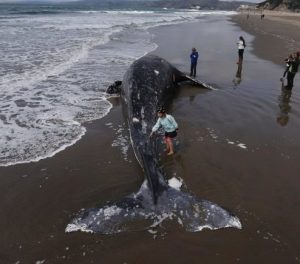
Gray Whales – NOAA declares ‘unusual mortality event’ after at least 70 West Coast strandings this spring
The declaration by NOAA — the National Oceanic and Atmospheric Administration — kicks in a provision of federal law that provides funding to help scientists figure out the cause of such die-offs of marine mammals, from whales and dolphins in the Pacific or Atlantic to manatees off Florida. So far this year, at least 70 gray whales have been found stranded and dead along the coasts of California, Oregon, Washington and Alaska — the most in nearly 20 years, scientists from NOAA said Friday. >click to read<17:06
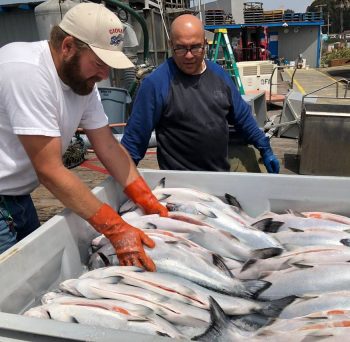
Epic catch brings tons of fresh fish to the Central Coast
Salmon are running in epic numbers this year off the Central Coast, and that means lots of fresh fish for commercial fishermen and hungry customers.
This year’s salmon season, which started commercially on May 1, is the best local fishermen have seen in 20 years. “It’s like Christmas for us,” DeGarimore said. “This is the biggest salmon catch we’ve had in the past two decades. We’re all really excited to see the boats coming in. Tourists are taking photos. Salmon are beautiful fish, and they make spectacular fillets. >click to read<15:14
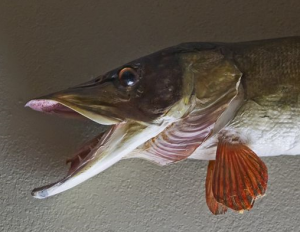
Last-ditch battle is underway to save Columbia River salmon, steelhead from determined predator
“In a lot of ways, the fight to save the Columbia River as we know it is going to be won and lost on Lake Roosevelt.” The enemy: northern pike.,,, The aggressive fish with razor-like teeth ended up in the Pend Oreille River sometime in the past decade – and kept going. This is bad news for the Columbia River’s salmon, trout, steelhead and other fish. Because the northern pike are big, determined predators. They’ll eat anything they can, including ducks. >click to read<11:00
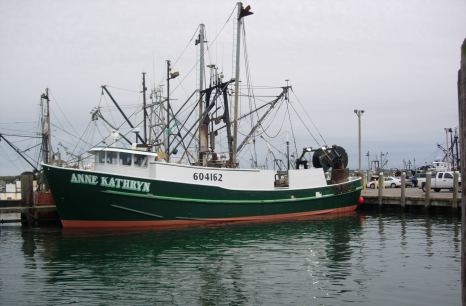
OUT TO CATCH THE LAST FISH? Fisheries “expert’s” anti-fisherman rhetoric gets taken to task!
“…most fishermen always want to catch more fish, regardless of how many there are.” This quote from the fisheries “expert” in the article, Warming waters spark marine migration, fish wars >click to read<on the warming ocean, and Joel’s subsequent comment, “And here in lies the problem. Look at what this cubical entrenched pencil pushing empty suit thinks of fishermen. Folks like this need to be taken to task”, inspired a re-post of this anti-fishing propaganda article, OUT TO CATCH THE LAST FISH? It’s a few years old, but sadly, as current as ever! To be a fisherman, these days, is to have first-hand knowledge of bias and mindless prejudice. Manipulating commercial fishing to save the stocks from “endangerment” and worse, has often been job justification for the political and personal agenda-driven, obsequious, career-climbing government fisheries “scientists” and managers. “Destructive” commercial fishing is also a handy foil for corporate style environmental groups’ fund raising efforts; and diminishing the importance of domestic commercial fishing is also a necessary step in the energy industry’s march into the sea. >click to read< Thank you, Dick.17:02
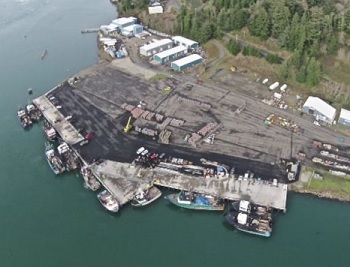
Port of Newport Commission aiming higher….
The Newport Port Commission and their new port General Manager Paula Miranda tackled a number of high profile issues during the port’s monthly port commission meeting this week. Topping the agenda was taking on the port’s financial situation – the need for higher revenues in order to help the port grow in stature and market share and to better accommodate the fishing fleet, private recreation boating facilities and R/V visitors – not to mention keeping the NOAA operations and Hatfield Marine Science Center happy as well. First off, the port commission is expected to raise moorage (dock) rates just about across the board. >click to read<11:37
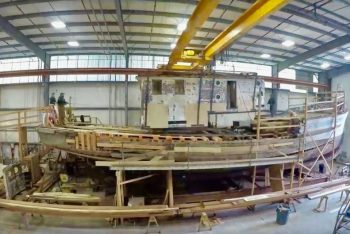
The Western Flyer – Restoration continues on historic boat made famous by Steinbeck book
It’s a story that keeps getting better as it is told. The Western Flyer fishing boat — made famous by John Steinbeck and Ed Ricketts, who chartered it in 1940 for a marine biological collecting trip to the Sea of Cortez in Baja California — is being restored at Shipwrights Co-Op in Port Townsend, Washington. “The historic restoration is well underway,” said Chris Chase, project director for the Western Flyer Foundation, the parent organization for the project. “It’s alive. People are working every day. It smells fresh.” >click to read<09:18
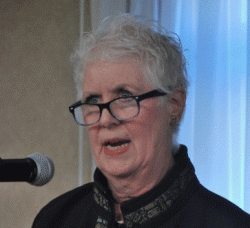
Promising news on pink salmon disaster relief funds
Dear Friends and Neighbors, As the season is either underway or close at hand for many of you, I wanted to provide a short update about where we are with the 2016 pink salmon disaster relief funding. I believe we have some promising news. Thanks in part to outreach from people like yourselves, Sen. Lisa Murkowski’s office has been putting a lot of pressure on the federal level to expedite the release of the grant funding. It appears to be having some effect. As I write this, it is Tuesday, May 28, according to new information, NOAA is aiming to release the grant funding to the Pacific States Marine Fisheries Commission (PSMFC) by this upcoming Saturday, June 1. Rep. Louise Stutes >click to read<19:37

Del Norte honors fishermen
Following services for men and women who gave their lives for their country, a smaller gathering rang the bell and called out the names of those whose occupation was no less treacherous. Linda Tvetan who, along with her daughter-in-law Angel Tomasini, organized the Fishermen’s Memorial noted that since Crescent City is a fishing community it made sense to honor those who were lost at sea on Memorial Day. Being a fisherman is tough and back-breaking. >click to read<13:35






